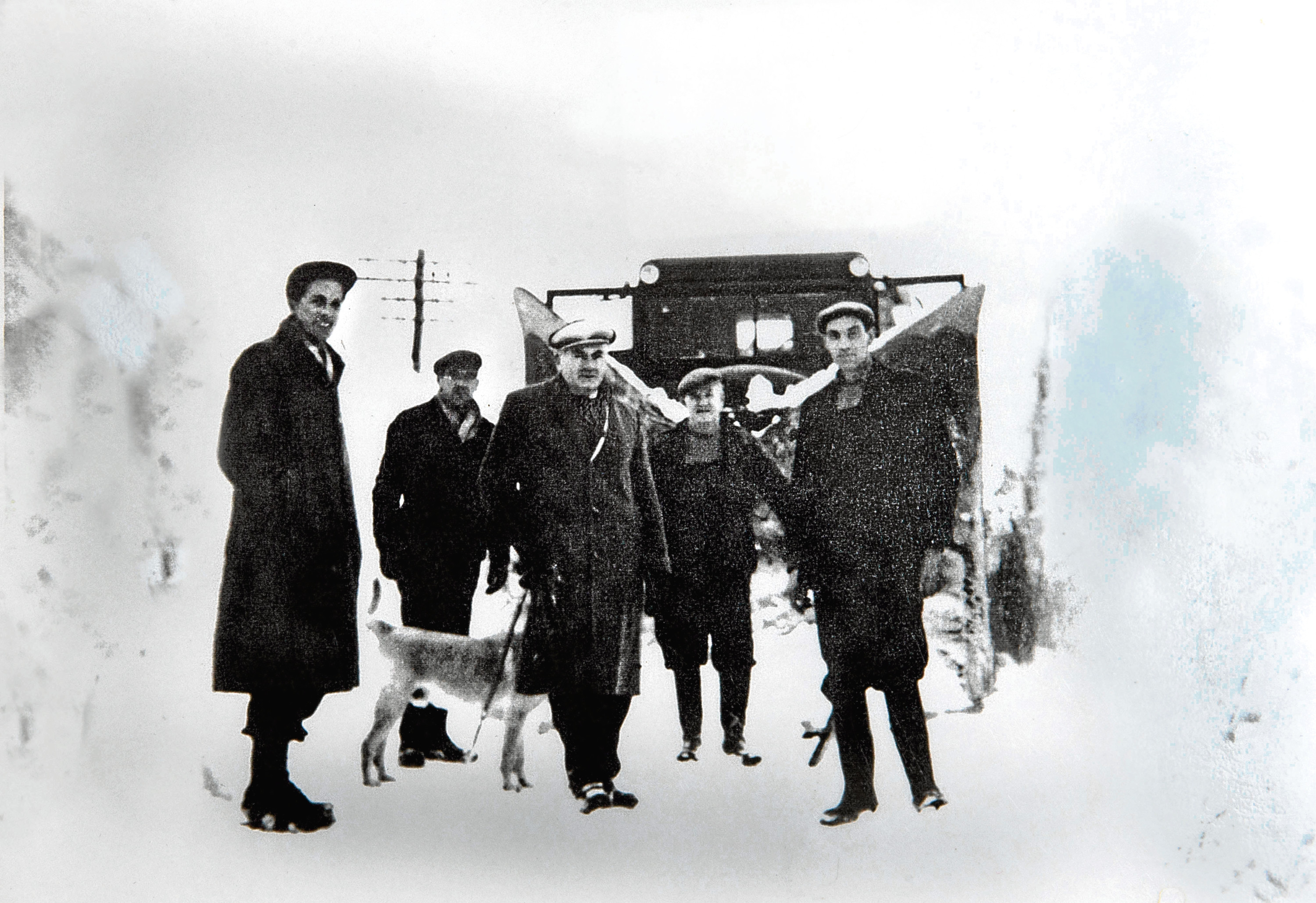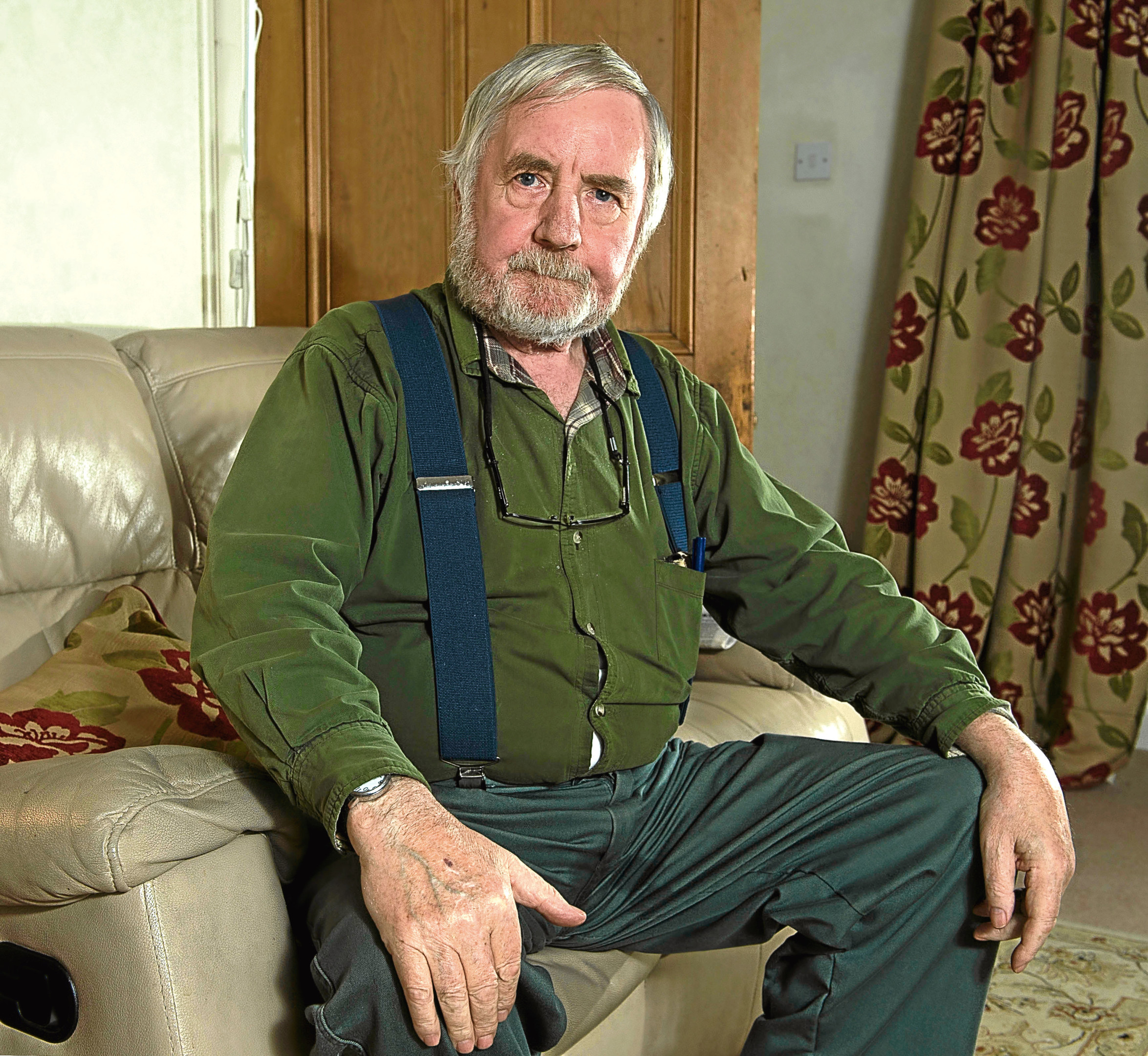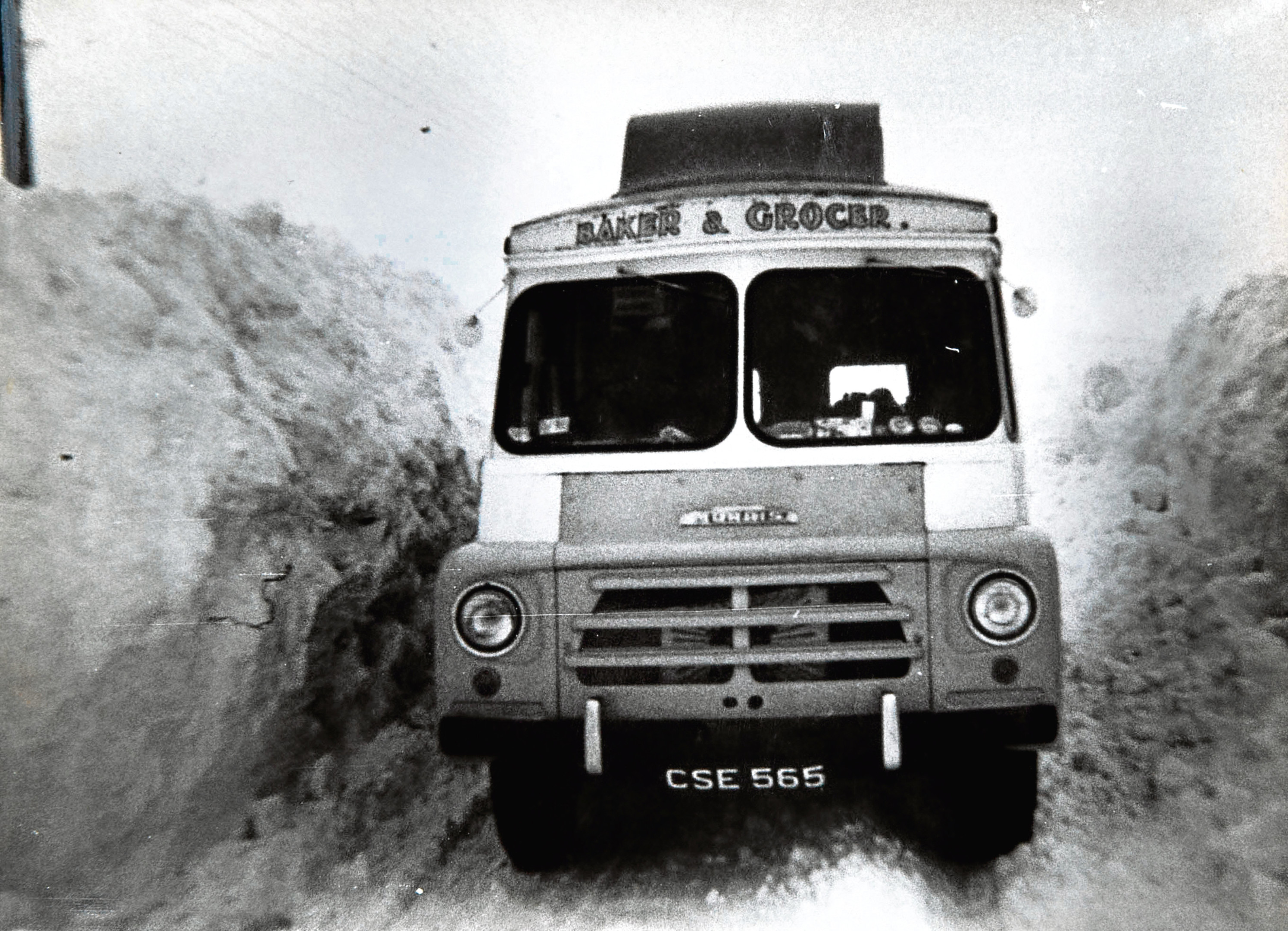
FOR more than nine million viewers the Christmas night telly highlight will be a shivery treat.
The backdrop to the festive special of Call The Midwife, last Christmas Day’s most-watched show, is the Big Freeze of 1962/63. The midwives have to fight their way through blizzards to tend to their patients.
And while we’re currently in the grip of a cold snap that has seen snow fall across the country, it’s nothing like the ’60s.
It was the winter the country thought would never end.
It began in Scotland on Christmas Eve and, for millions, it would be the first week in March before the Arctic blast passed and the snow would begin to melt.
Iain Birnie was a 22-year-old in Tomintoul when the icy blast struck 55 years ago.
“It was a hell of a storm,” says Iain, now 77.
“Everything came to a standstill.
“There was a hard frost on top of the snow and it just went on and on. You’d have a few days of a lull but then there would be another snowstorm and the gales would whip it into drifts.”
Fog and ice had already caused chaos when a frontal system moved into the country and snow began falling on December 24.
It gave Glasgow its first white Christmas since 1938 as it moved south, hitting London on Boxing Day.
Initially it was welcomed by children and families who saw it as a bit of holiday fun.
But tragedy soon turned the mood. On Boxing Day, the 1.30pm Glasgow to London express, continuing on through frozen points and warning signals in heavy snow, ploughed into the back of a stationary train near Crewe.
The rear carriages of the train to Birmingham were crushed and 18 people lost their lives, with 30 badly injured.
Any novelty soon faded as the reality of trying to get to work dawned.
By the New Year, the usually-packed football schedule was decimated, with matches off across Scotland and England.
Every part of the country was hit by the freak conditions.
The upper stretches of the River Thames in London froze solid, as did the sea off of the Essex coast in one of the coldest winters for 300 years.
Meanwhile, two men from the Perthshire village of Stanley became the first to walk across the frozen River Tay since 1898.
Living in the highest village in the Highlands, Iain Birnie and fellow Tomintoul residents bore the brunt of some of the worst of the conditions.
Dad John had run the grocery and bakery shop since 1930 and Iain had recently taken over driving the mobile shop. Trying to get supplies through to customers in Glenlivet in the early days of the Freeze, he fell victim to the snow.
“The roads filled up in about 10 minutes and we were all stuck. I knew people round there so I got a bed, but it was a couple of days before the snowplough came and cleared the road for a tractor to pull the van out.
“They didn’t even bother to try to clear the road to Cockbridge. It didn’t have snow gates back then, so if you did get trapped, that was you.
“Somebody asked when it would be open and they joked it’d be about July.”
Across the UK, tales of those battling through emerged.
Nine Wigtownshire kids had to be airlifted by helicopter from their remote schoolhouse after being trapped for five days.
While the youngsters thought it was an adventure, it was a different matter for teacher Joan McCracken.
“They didn’t realise how serious the situation was,” she told The Sunday Post at the time.
“Before the helicopter arrived, we had food for only one more day.”
Love conquered all for bridegroom Peter Lovatt.
The Royal Navy submariner took three days, by train and two steamers, to beat the blocked roads and cover the 500 miles from Portsmouth to marry bride Ann in snowed-in Campbeltown.
In Tomintoul, the Birnie’s shop proved a lifesaver for the village. Well-stocked with flour, the bakery was able to keep supplies of bread on the shelves.
And community spirit saw vulnerable residents looked after.
“The village was regularly cut off over a couple of months whenever it snowed and the wind got up as there was just one old ex-Army snowplough,” said Iain.
“There was no TV, just the wireless, and the phone lines were down.
“Everybody knew everybody and helped each other. I used to do deliveries in the village. If people weren’t in and I’d just go in, make a cup of tea, and wait for them.
“And there was nothing to do but go to the pub, so folk would gather and have a damn good dram. But by the time March came and it started to thaw, everybody was just sick of it.”
That was definitely the case for John Cooper, his wife and two young children.
They were finally rescued on March 2 after 66 days trapped at home on Dartmoor.
Soldiers took five days to dig through the 20-foot high wall of snow – with John’s wife planning a “hair-do and shopping spree” on the first outing since December 27.
But a relieved nation, thrilled to see the back of more than two months of misery, found winter had one last sting in its tale.
Eight inches fell in Scotland in mid-April, with the AA describing it as “utter and complete chaos – unprecedented on an Easter holiday weekend.”
Do you remember the winter of 1962/63? We’d love to hear from you. Send your stories to mail@sundaypost.com

Enjoy the convenience of having The Sunday Post delivered as a digital ePaper straight to your smartphone, tablet or computer.
Subscribe for only £5.49 a month and enjoy all the benefits of the printed paper as a digital replica.
Subscribe
